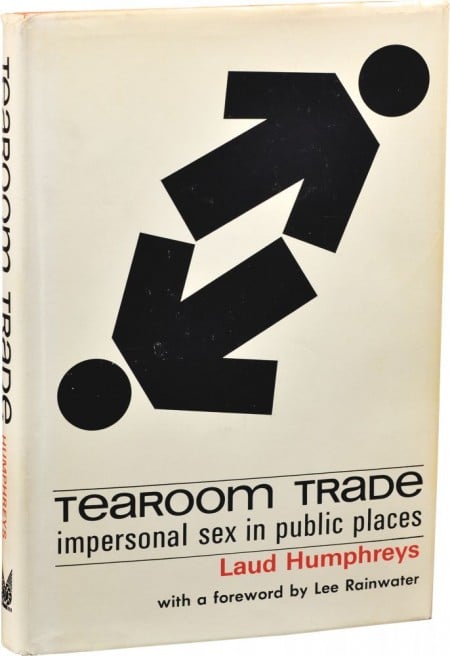Laud Humphreys
By:
October 16, 2015

In the spring of 1967, as a series of strangers gratified themselves or each other in a park lavatory in St. Louis, Missouri, a nondescript man stood at the door, watching for police. Unknown to the others, LAUD HUMPHREYS (1930–88) was a former Episcopal priest, closeted family man, and Ph.D. candidate, there to collect data for a sociological dissertation on anonymous homosexual encounters in public toilets (aka “tearooms”). As “watchqueen,” Humphreys took mental notes on everything: number of participants, clothing and appearance, acts performed, words or signals exchanged, placement of bodies. Then he went further, noting the strangers’ license plate numbers, going to their homes, and conducting follow-ups while posing as an insurance-company surveyor. By viewing the clientele in their “natural” habitat, Humphreys humanized his observational data; what he demonstrated, shockingly for the time, was the degree to which tearoom habitués were married men with rigidly conservative values.
Tearoom Trade: Impersonal Sex in Public Places (1970) won the C. Wright Mills Award, but the lurid story and blurred lines behind it resulted in Humphreys’ professional vilification: he was attacked in print and person by, among other peers, socio-criminologist Edward Sagarin (himself a closet case whose pseudonymous 1951 study of homosexuality had classed it, albeit sympathetically, as “neurotic disturbance”). The tearoom study is still referenced in discussions of methodological ethics, and with good reason: Humphreys crossed the lines separating observer and participant, experimenter and deceiver. But the Stonewall rioters crossed a line, too. Sometimes lines are crossed; sometimes risks are taken. And sometimes America moves forward.
***
On his or her birthday, HiLobrow irregularly pays tribute to one of our high-, low-, no-, or hilobrow heroes. Also born this date: Louis Althusser, Ray Johnson, Oscar Wilde.
READ MORE about members of the Postmodernist Generation (1924-33).
